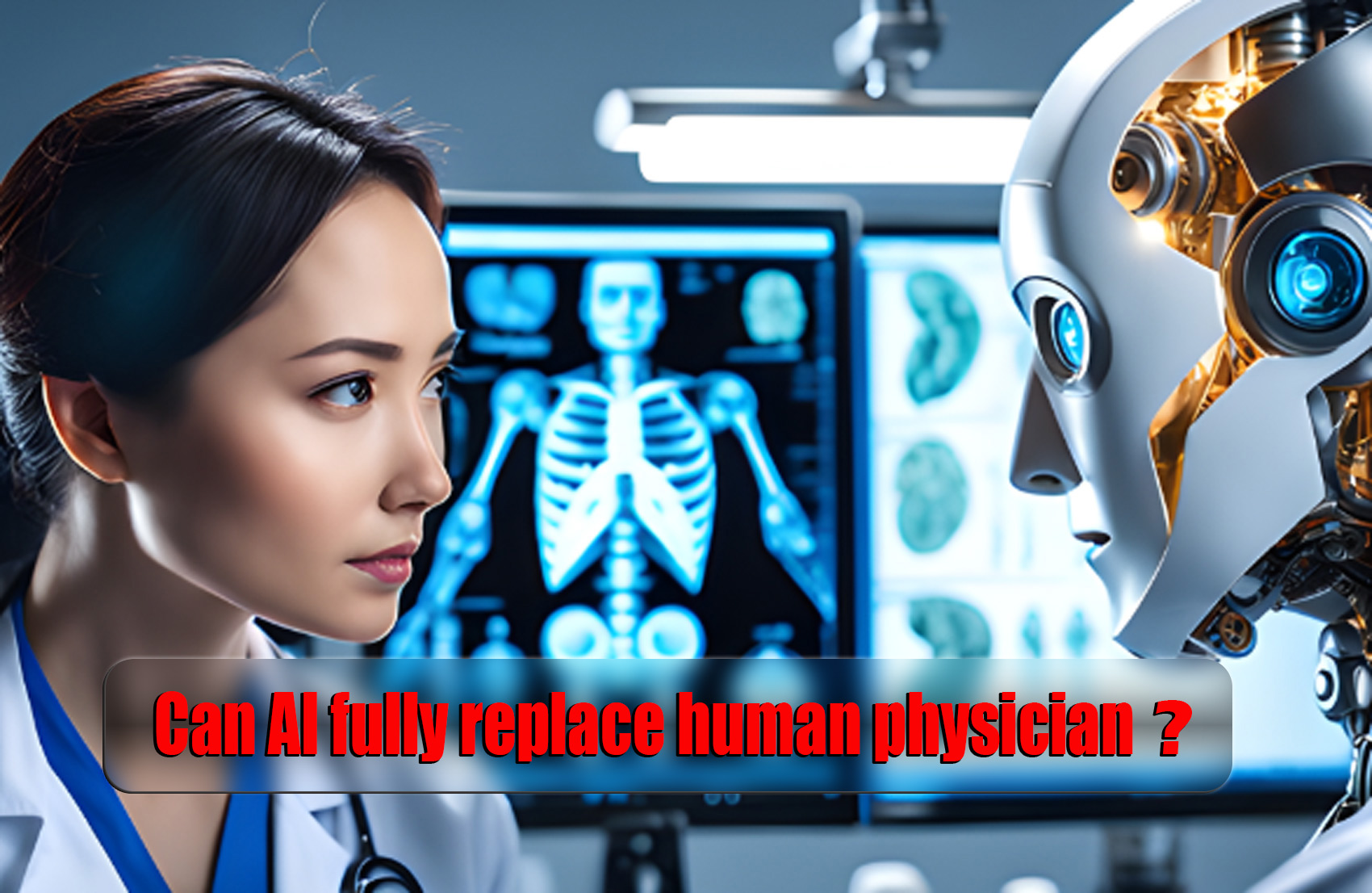Can Artificial Intelligence (AI) fully replace human physician?
The application of artificial intelligence-driven solutions is significantly improving the healthcare landscape and is anticipated to influence all areas of health care in the years ahead. Nevertheless, can AI ultimately match or supersede the capabilities of a human physician? Does this imply that healthcare professionals will become obsolete?
During the initial development of computers and Artificial Intelligence in the 1950s, some forward-thinking individuals envisioned their potential to enhance diagnosis and treatment decision-making. However, the computational capabilities of early computers were insufficient, and, more significantly, nearly all relevant patient data was stored on paper rather than electronically. Physicians recorded patient symptoms and examination findings in handwritten notes, often difficult to decipher, while test results were transcribed onto paper and included in patients’ paper medical records. As computers advanced, they began assisting healthcare professionals with mundane tasks such as analyzing images, blood samples, and Pap smears, alleviating some of their workloads.
In the present day, computers possess computational power that is millions of times greater than when they were first created. Moreover, vast quantities of medical data are now available electronically, including the medical records of millions of individuals, results from medical research, and the expanding knowledge of human physiology. This wealth of digital data has made the application of AI in medicine a reality. AI also enables physicians to assess their own clinical performance, as it can analyze video footage to document and track a surgeon’s actions, capturing even those that may have been forgotten or omitted from their personal records.
Although AI can be an incredibly powerful tool to support and enhance medical decision-making, but there are several reasons why it cannot entirely replace human physicians:
- Empathy and human connection: A significant aspect of healthcare involves providing empathy and emotional support to patients. AI systems may not be able to replicate the human connection that patients often require, particularly in difficult situations such as receiving a serious diagnosis or dealing with end-of-life care.
- Clinical judgment: Human physicians possess clinical judgment developed through years of training and experience. They can integrate complex information and make decisions based on their expertise and intuition. While AI algorithms can analyze large amounts of data and provide insights, they may struggle with unique or ambiguous cases that require human intuition.
- Ethics and accountability: Medical ethics and decision-making often involve complex moral considerations, which AI systems may not be equipped to handle. It’s also difficult to establish accountability for AI systems when adverse outcomes occur.
- Adaptability: Human physicians can adapt to evolving medical knowledge and changing patient needs more easily than AI systems, which may require time-consuming updates and data-driven retraining.
In conclusion, it is most probable that AI and physicians will collaborate to enhance the overall quality of patient care. For example, AI can enable physicians to consider all relevant factors impacting their patients’ health by analyzing extensive data sets. While AI technology will continue to progress and become further incorporated into healthcare, it is anticipated that it will primarily serve as a supportive tool to augment the capabilities of human physicians rather than supplant them entirely. At CellSight Diagnosis, we are dedicated to developing an AI-driven diagnostic model that strives for the highest possible accuracy, with the goal of serving as a powerful decision-support tool for physicians. Our technology is designed to enhance clinical judgment and efficiency, complementing rather than replacing the vital expertise of healthcare professionals.


Leave a Reply